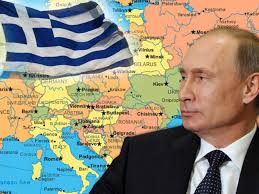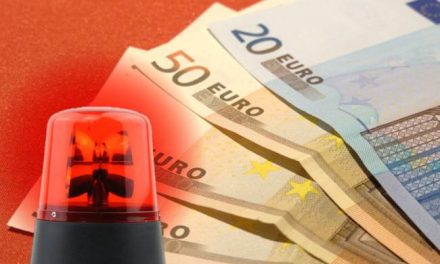By Justin Chase, capitalotc.com
Greek Prime Minister Alexis Tsipras expressed his confidence on Sunday that talks with the European creditors are going well and there is no way his country will go bankrupt.
Tsipras took a less radical approach than what the public was accustomed to in Saturday’s round of discussions, suggesting he seeks no rift with Europe and reassured the EU and the IMF representatives of Greece’s full cooperation on reforms.
Athens is prepared to come forward to the creditors with a set of proposed economic reforms, sought to convince them to approve a new 7.2 billion euro ($7.8 billion) bail-out package. Economists believe a new EU-IMF loan is essential for Greece to prevent the country from going into debt default.
Committing to a significant budget cuts will be only Athens’ first step in convincing Germany that they can handle another loan. Germany’s Chancellor Angela Merkel is one of Europe’s top advocates for austerity measures, and her opinion really matters since any major decision the European Union makes must earn Berlin’s approval.
Fighting budget cuts was one of Tsipras’ most popular policies back home, one that essentially got his leftist anti-austerity Syriza coalition elected to power. Many experts question the prime minister’s ability to strike a deal of such importance for his country with the same people he apparently loathes.
“There are powers which have specific interests and which want a rupture,” Tsipras referred to the EU pro-austerity officials in a recent interview “but there are also powers – which will prevail – seeking a sincere and honest compromise.”
Those who oppose a bail-out extension for Athens occupy key governmental positions and are unlikely to change their mind, such as Bundesbank chief Jens Weidmann, who recently accused Greece of playing with the trust the European Union had put in the country.
Rating agencies gave Greece a “CCC”, which practically means that if the Greek government is not successful in asking for another loan, the country may go bankrupt. However, Greek officials are trying to convince their people that things will sort out in their favor soon. “We have agreed that we need to draw up suitable policies which will shift the burden from those on the lowest incomes to those on the highest,” a member of the Greek delegation in Brussels told media.
Documents Athens sent to Brussels try to suggest that the proposed reforms will see the Greek economy keep increasing at the end of this year, by an estimated 1.4 percent, after just in 2014 the six-year recession the country has been going through ended. Greece claims it will tackle its persistent tax evasion problem directly, as this would lead to a 3 billion euros ($3.3 billion) revenue increase in 2015.
But senior euro-zone officials are not that confident. After inspecting the data Greece sent, some European ministers implied it is very unlikely that Athens will receive a bail-out extension at the end of the current negotiations, and any further decision will not be made until mid-April.
If this proves to be true, it could mean serious trouble for Tsipras’ government. According to economists’ estimations, Greece will run out of money around April 20, a date dangerously close to the next meeting that will decide the country’s fate.
Meanwhile, the Greek government seems willing to take money from whoever is willing to offer. A recent announcement made by a Greek deputy prime minister revealed China is on the brink of buying a majority package in the port of Piraeus, Athens’ most important commercial port.
Russia is also looking to capitalize on Greece’s liquidity problem, as the Russian ambassador to Athens told in a local newspaper that his country is willing start negotiations on a potential loan. It is likely that Moscow will tie any agreement to a Gazprom investment in Greek gas company DEPA, who the Russian gas giant has tried to buy in the past.
Tsipras is scheduled to meet Russian President Vladimir Putin in Moscow on April 8. Whatever the two leaders will be discussing then is probably going to be influenced greatly by next week’s round of talks between Greece and EU-IMF.



















